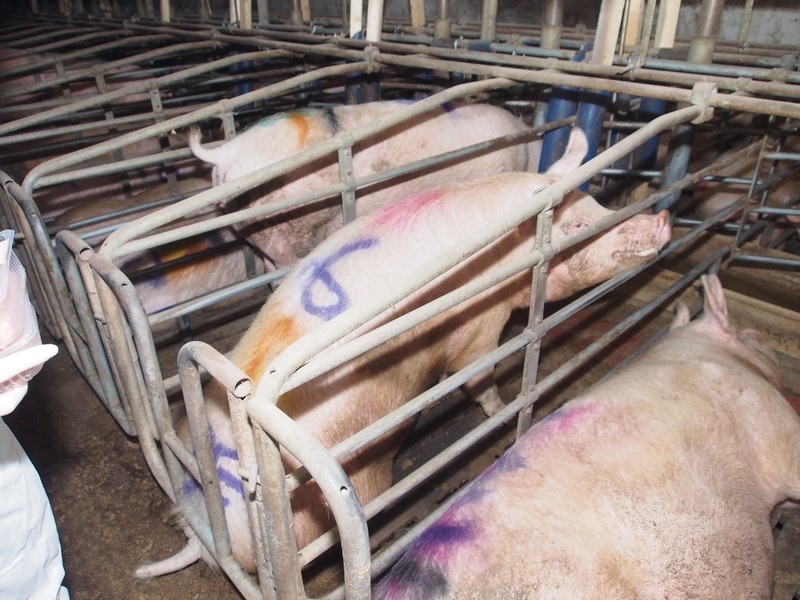Global meat and dairy production and consumption must be cut in half by 2050 to avoid dangerous climate change and keep the Paris climate agreement on track, says a new Greenpeace report.
**Read our vision, Less is more: reducing meat and dairy for a healthier life and planet, and the scientific background here: www.greenpeace.org/livestock_vision**
In Europe, the reform of the common agricultural policy must help facilitate a transition away from industrial animal farming, while supporting the increasing numbers of farmers shifting towards ecological plant, meat and dairy production, said Greenpeace.
Greenpeace EU agriculture policy director Marco Contiero said: “EU agricultural policies have been driving us towards an environmental cliff edge. Industrial animal farming is a major source of carbon emissions, water and air pollution, and causes major health problems like antibiotic resistance. Our governments must ensure that the upcoming reform of farm rules accelerates a shift to ecological vegetable farming and less, but sustainable, animal farming, while withdrawing support from intensive animal production.”
Three out of every four animals reared in Europe are kept in a small number of very large farms, while the smallest farms have reduced their herds by 50 per cent.
If left unchecked, agriculture is projected to produce 52 per cent of global greenhouse gas emissions in the coming decades, 70 per cent of which will come from the meat and dairy sector. Animal farming in Europe already contributes 12-17 per cent of the EU’s greenhouse gas emissions.
It is also a major source of water and air pollution, in particular from nitrogen and phosphorus in water, and ammonia and fine particulate matter (known as PM2.5) in the air. Nitrogen pollution alone costs the EU up to €320 billion every year.
Last week, the European Food Safety Authority and the European Centre for Disease Prevention and Control described antibiotic resistance as “one of the biggest threats to public health”, echoing statements by the World Health Organization. A joint report by the two agencies confirmed the presence of bacteria in farmed animals that have developed resistance to crucial antibiotics used to treat people.
Pete Smith, former convening lead author for the Intergovernmental Panel on Climate Change (IPCC), said: “The need to reduce demand for livestock products is now a scientifically mainstream view. Only a significant decrease in meat and milk consumption will allow us to deliver a food system fit for the future – for the benefit of humans and the planet as a whole. Producing the same mix of foods as we consume now, even if we were to do so more sustainably, cannot deliver the reduction in environmental impacts we need to protect the planet for our children and their children.”
Read our vision, Less is more: reducing meat and dairy for a healthier life and planet, and the scientific background here: www.greenpeace.org/livestock_vision
Contacts:
Marco Contiero – Greenpeace EU agriculture policy director: +32 (0)477 777034, [email protected]
Greenpeace EU press desk: +32 (0)2 274 1911, [email protected]
For breaking news and comment on EU affairs: www.twitter.com/GreenpeaceEU
Greenpeace is an independent global campaigning organisation that acts to change attitudes and behaviour, to protect and conserve the environment and to promote peace. Greenpeace does not accept donations from governments, the EU, businesses or political parties.

